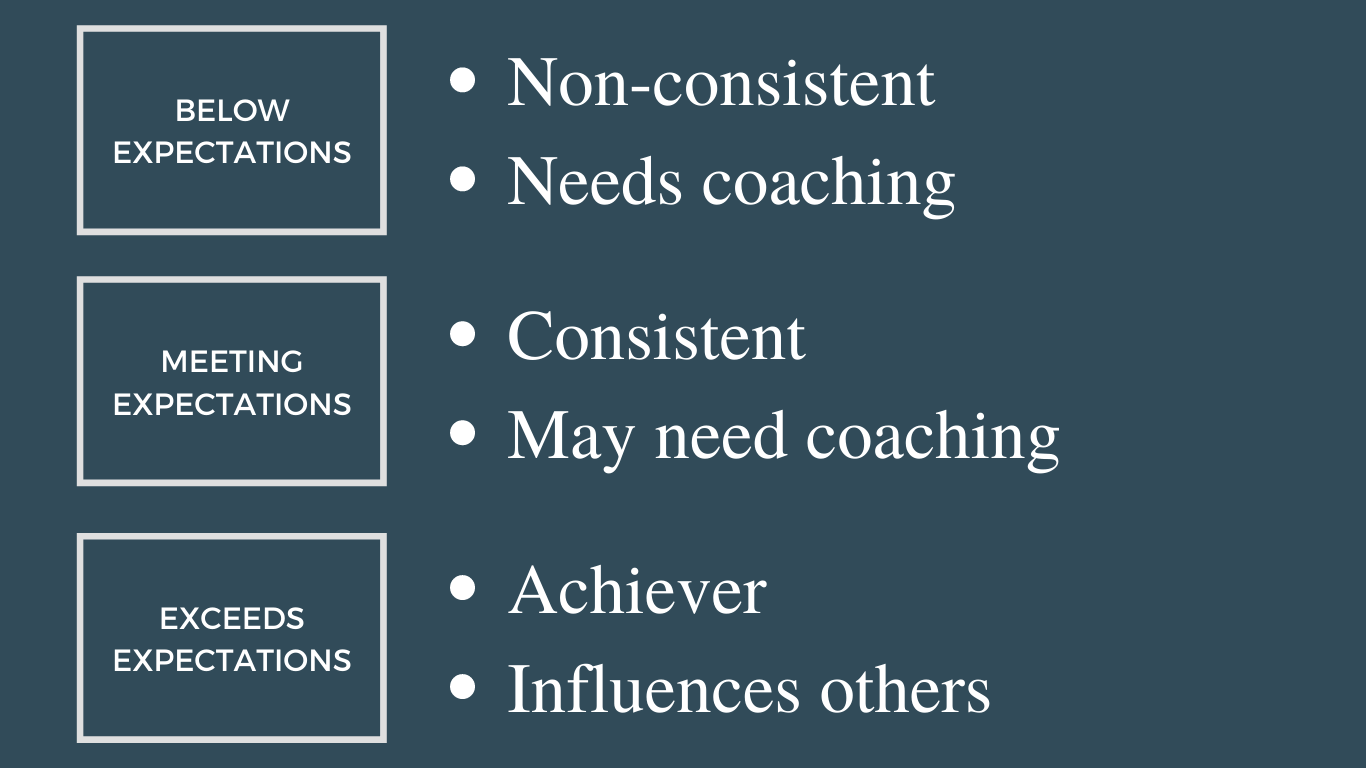
Performance appraisals for administrative assistants, also called “performance reviews” or “performance evaluations,” are an assessment in which a supervisor or manager reviews their assistant’s work performance.
As a manager, a performance appraisal is your time to identify your assistant’s strengths and weaknesses, acknowledge achievements, and review and set performance goals.
Some managers conduct appraisals once a year. Others carry them out quarterly or even monthly. But no matter how often you choose to do them, appraisals are vital for ensuring your assistant is performing well. They are your chance to make your expectations apparent. Regular appraisals also increase team member engagement and boost future performance.
If you’re not sure how to conduct a performance appraisal for an administrative assistant, here’s everything you need to know.
What Should You Consider in a Performance Appraisal?
You can include anything you’d like in a performance appraisal. But there are some key things you should consider when planning a performance appraisal for an administrative assistant.
Strengths
First, identify your administrative assistant’s strengths. Positive feedback lets your assistant know that you notice and appreciate their hard work.
Consider these questions related to strengths:
- Are there specific areas your assistant excels in?
- How has their contribution made a difference for you and your team?
- How have they maintained the core values of the company?
- Can you further leverage these strengths in their role?
Specific and personalized praise can help boost team member morale, engagement, and growth.
Weaknesses
A well-rounded appraisal for your administrative assistant should also include identifying any weaknesses.
Consider these questions related to weaknesses:
- Are there specific areas where they are underperforming?
- Are there areas that need improvement?
Follow up weaknesses with constructive feedback on how they might be overcome. Is this something they can work on by themselves or is training an option? Discussing weaknesses provides a solid direction for goal-setting.
While it’s important to discuss your assistant’s weaknesses, don’t make them the center of attention. Be honest and address problems where needed. But keep the appraisal’s focus on positive feedback and setting goals.
Accomplishments
Throughout the year, take note of any significant achievements and successes. Documenting accomplishments as they happen will help you remember them. Recognize these significant achievements during their performance review.
Goals
One of the most critical aspects of performance appraisals for administrative assistants is setting and reviewing goals.
Setting clear performance goals can help your assistant prioritize their workload, develop new skills, and advance their careers. Clearly defined SMART goals also give you something definitive to measure and discuss during their appraisal.
Start by reviewing whether your assistant achieved the goals you set during your last evaluation. You can then look for opportunities for improvement and set future goals.
Administrative assistant goals should directly reflect the company’s goals. You should also check if there are any personal goals your assistant would like to work on.
Feedback
Performance appraisals are primarily to discuss your administrative assistant’s work performance. But they shouldn’t be completely one-sided. Team member reviews are also an excellent time for you to receive feedback as a manager. Encourage your assistant to be as open with you as possible.
Consider asking:
- What are you doing well as a manager?
- What could you improve on as a manager?
- Is there anything your assistant needs from you to do their job better in the future?
- Does your assistant feel comfortable expressing any concerns with you?
Receiving feedback from your assistant can help you determine what you can do to help them achieve success.

What to Evaluate in Performance Appraisals for Administrative Assistants
What you choose to evaluate during a performance appraisal will vary depending on your company and which tasks you delegate to your administrative assistant. Below are some general traits and expectations of a high-achieving assistant.
Time Management and Organization
Good time management skills are vital for an administrative assistant. An assistant needs to be able to effectively manage their own time and organize the schedule of their manager or others within the department. Administrative assistants also help an office run more efficiently. They can increase productivity through their strong organizational skills.
Items to consider related to time management and organization include:
- Do they accomplish tasks on time?
- Do they ever miss important deadlines?
- Can they prioritize high-importance tasks?
- Are they adaptable to the ever-changing demands of the team?
- Are they able to organize schedules without overwhelming managers with meetings?
- How have they helped maximize your office’s productivity?
Interpersonal and Communication Skills
Administrative assistants often liaise between executives and managers and other employees, clients, and vendors. Your assistant should maintain a positive demeanor around the office, communicate effectively, and nurture strong relationships with stakeholders. Assistants also spend a lot of time writing emails, memos, and reports. They need to understand grammar and write in a professional tone.
Consider:
- Do they work effectively within a team environment?
- Do they communicate in a friendly and professional manner with internal and external stakeholders?
- Can they stay calm and maintain a positive attitude during high-pressure situations?
- Are they trustworthy with sensitive and confidential business information?
Project Management and Task Execution
Assistants are in charge of multiple tasks around the office and may even manage large-scale projects and events. Many of these tasks and projects happen under pressure or time restraints. This pressure means they should be able to demonstrate resourcefulness and problem-solving abilities.
Consider:
- Are they comfortable managing projects and tasks with limited guidance?
- Are they able to multitask effectively?
- Do they demonstrate strong attention to detail?
- Do they show initiative and resourcefulness when faced with a challenging task?
- Do they show problem-solving abilities when running into an issue?
Individual Goals
Don’t forget to evaluate any individual and company-specific goals that you set for your administrative assistant. These goals could be reducing the cost of office supplies, learning new time-saving technologies and software, or planning more company-wide social events. Look back at the goals you set your assistant when they started or during their last appraisal. Have they achieved these goals? And is there still room for improvement?
Most Common Assessment Scales for Performance Appraisals
So how exactly do you evaluate the expectations mentioned above? Using rating scales is common practice in performance appraisals. Rating scales can help you quantitatively measure your assistant’s performance. They also help you monitor development over time.
The most popular assessment scales for performance appraisals are Likert, semantic, and custom scales.
Likert Scales
The Likert scale measures your response to a statement. Responses usually come in the form of “Strongly agree. Agree. Neither agree or disagree. Disagree. Strongly disagree.”
An odd number of responses include a neutral option. You can also pick an even number of responses by adding “slightly agree” and “slightly disagree” to force a choice.

Semantic Scales
Semantic scales are similar to Likert scales but offer two opposing choices with numbers in between.

Custom Scales
A final option is to design your performance rating scale to suit your needs. This method is standard among large corporations’ HR teams.

Find an Administrative Assistant You’ll Want to Praise
Performance appraisals let your assistant know whether they are meeting your expectations. They encourage praise and acknowledgments. Appraisals are also useful for growth and future goal setting.
Looking for an assistant to appraise? At LifeSquire, we take the stress out of the assistant hiring process by helping find, interview, and train the perfect assistant for you. Contact us for more information.
Looking for even more advice on performance appraisals for assistants? Download our free e-book on “Maximizing Your Relationship with Your Assistant.”

0 Comments